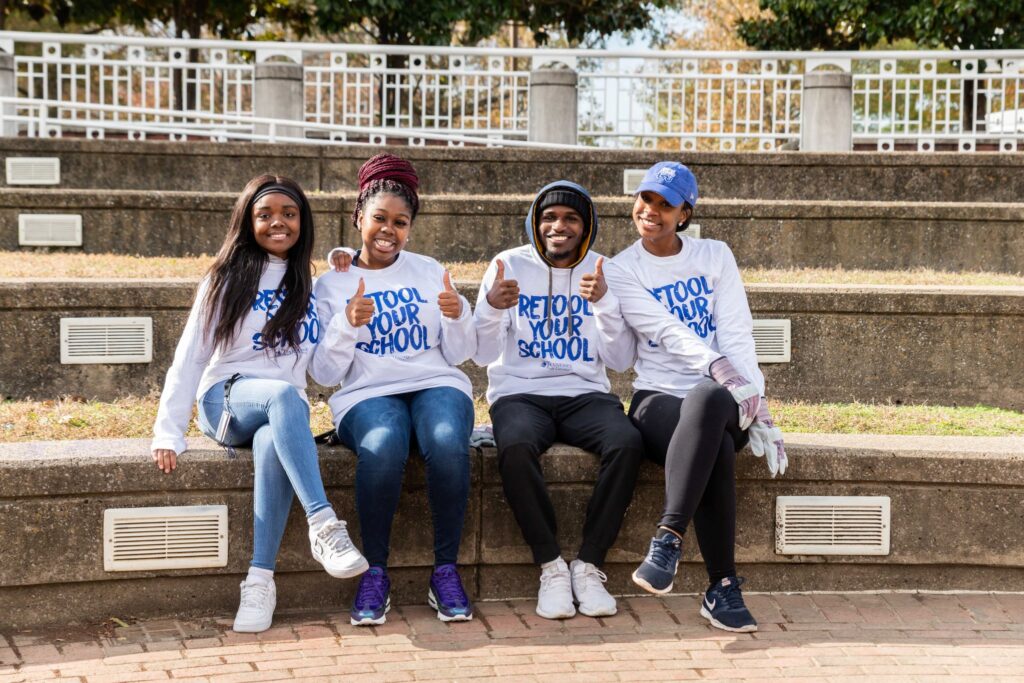
Attending an HBCU will be one of the best decisions that you’ll ever make. Scholarships are one of the best ways to cover your college costs.
It’s fairly common for students to get scholarships after graduating high school. But did you know that there are also scholarships that help current college students? Let’s explore helpful tips for finding scholarships after your freshman year.
About Scholarships
Before we begin, here’s a quick refresher on the various types of financial aid.
The four most common types of financial aid are loans, work-study programs, grants and scholarships. Work-study recipients must work to earn money. Loans, grants and scholarships don’t require you to work, but you must pay back student loans.
Unlike loans, scholarships and grants don’t need to be repaid. While grants are typically awarded based on financial need, scholarships can be awarded for many reasons.
Some scholarships are need-based, but most scholarships focus on academic, athletic or other achievements. Other scholarships look at the applicant’s hobbies, affiliations, talents or personal characteristics. For example, there are scholarships for people who belong to or identify with a particular race, gender or sexual orientation. There is a seemingly endless list of reasons why scholarships might be awarded. With some research, you can find the right one for you.
Where to Find Scholarships
With millions of scholarships offered to college students each year, there’s a scholarship out there for everyone. Knowing where to look is the first step toward finding one. Here are a few places to begin.
- Your school’s financial aid office. This is the place to start your search. Most financial aid offices maintain lists of scholarships. Usually, this list will include scholarships solely for students at your HBCU as well as scholarships open to all applicants. Your financial aid officer might even have some suggestions off the top of their head. Talk to them ASAP. The sooner the better because many scholarship funds have a “first come, first served” policy.
- Searching the internet. You can find scholarships on the web. There are many trustworthy websites that allow students to search for scholarships. You can put in your location, major, class year and many other search criteria.
While the internet is a good place to look for scholarships, as with anything web-related, you’ll need to exercise caution. To make sure that the scholarship you found is legit, use the Federal Trade Commission’s tips for avoiding scholarship scams. - Your HBCU’s website. Speaking of the web, don’t forget to look at your HBCU’s website. Many financial aid offices’ websites list scholarships for returning students. (You should still make an in-person visit to the financial aid office, though.)
If you attend a public HBCU, don’t forget to check your state or state university system’s website. They often list scholarships. - Honor societies. If you belong to an honor society, check out their website. They may have scholarships for sophomore, junior and senior students.
- Fraternities and sororities. The Divine Nine organizations offer scholarships to high school grads entering college and those already in college or grad school. Some organizations limit their scholarships to members, but others do not. So, it’s worth taking a look no matter your membership status.
- Religious organizations. Religious organizations (churches, synagogues, mosques, temples, etc.) often help students with college costs. Ask your worship leader or other members how to find and apply for scholarships associated with your religion.
- Professional organizations. Many professional organizations offer scholarships for students pursuing careers in a particular field. Look at the most popular professional groups for your career and see what their local and national chapters or affiliates may offer.
There are also professional organizations that are tailored to underrepresented groups. For example, there are organizations that support women in STEM, people of color in journalism, and many more. Find these groups and look into their scholarships. - Nonprofit organizations. Is there a cause you care about? Nonprofits often give out scholarships to members of their youth chapters or students who plan to work on the issues they support. Check out their websites to find scholarships. Don’t limit your search to the national organization. Some local chapters of national nonprofits also give out scholarships.
- Corporations. Many major corporations give out scholarships. Some give scholarships to current or former employees or interns. Some are focused on African American or HBCU students. The Home Depot/UNCF Scholarship awards 30 scholarships to eligible HBCU students each semester.
- Your Family. Your family is a valuable scholarship resource for many reasons. For example, did you know that there are scholarships for people whose parents served in the military? Also, many companies award scholarships to the children of their employees. Think about your family background and then make a list of things that might lead to scholarship opportunities.
- Your HBCU’s Alumni Association. Many HBCUs have alumni associations that give scholarships to incoming and current students. And don’t overlook your hometown chapter. Local chapters often operate scholarship programs.
Hopefully, these tips will help you find scholarships after your freshman year. Good luck!
